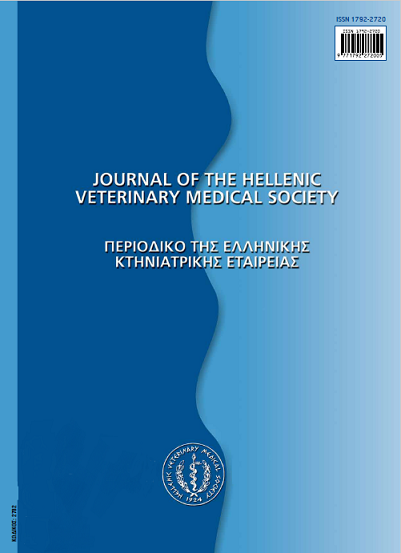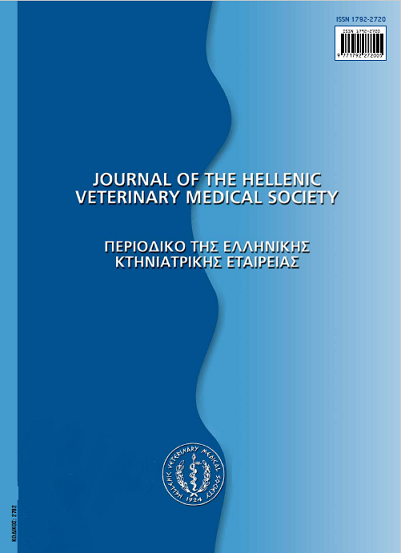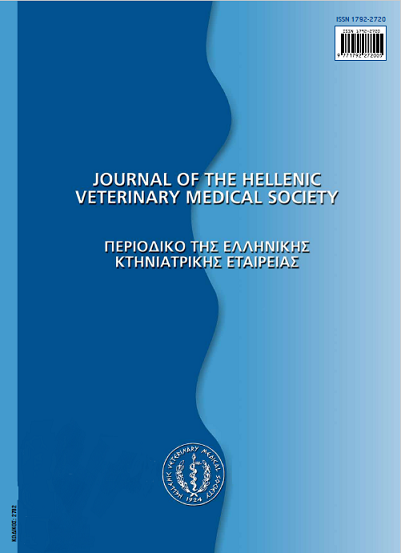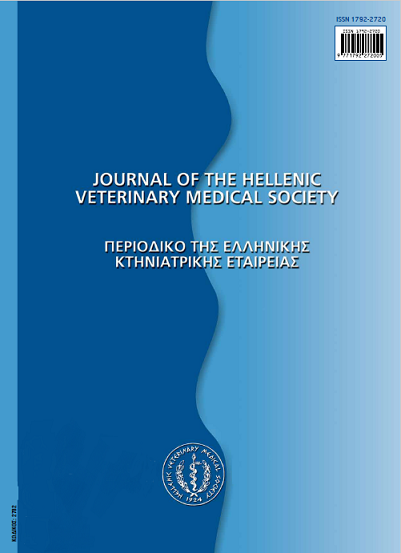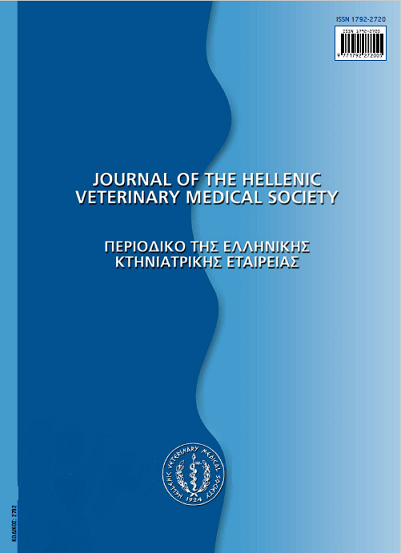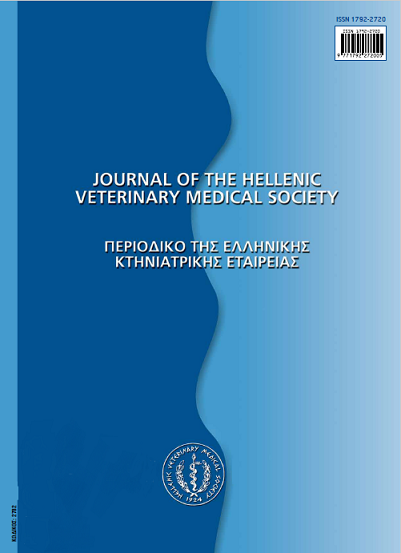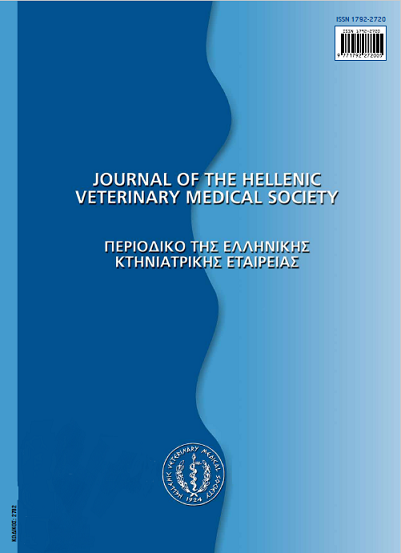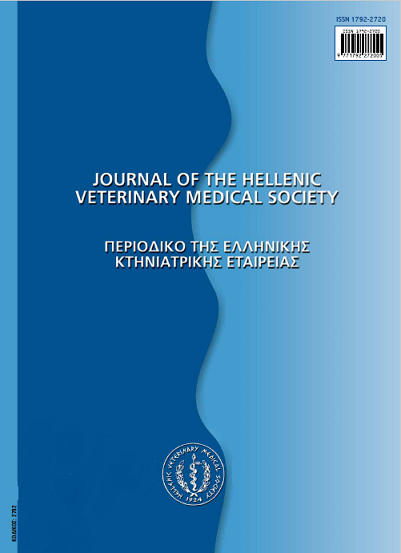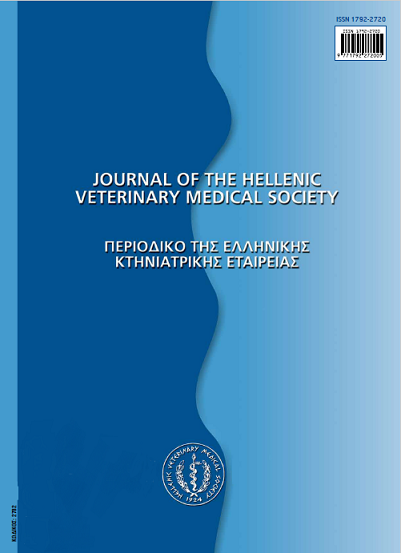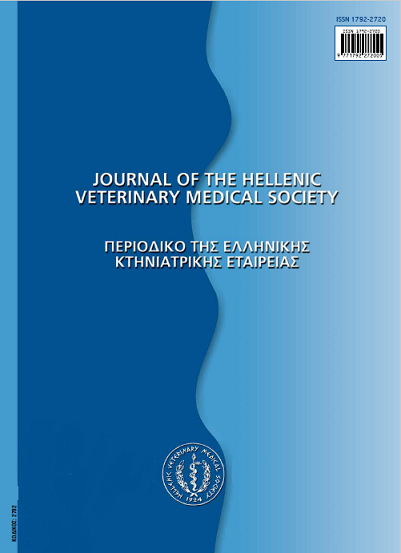Equine colitis Χ
Résumé
Colitis Χ is an acute or peracute colitis of unknown origin, which is characterized by a sudden, watery diarrhea that is usually accompanied by symptoms of hypovolemic shock and leads to death in less than 24 hours. Although colitis X has been studied extensively, the causative factor has not been clarified yet and prognosis is average to poor, as mortality could reach 90-100%. Still, mortality rate could fall to 75%, if treatment is imminent and aggressive. Occasionally the disease has been attributed to viruses, parasites, bacteria, use of antibiotics and sulfonamides and heavy metal poisoning. Stress is considered as an aggravating
factor for colitis X. The clinical signs are similar to those described for other forms of acute- peracute colitis. Diarrhea and abdominal pain constitute the main discoveries, but at the same time tachykardia, tachypnea, weak pulse, congested or cyanotic mucous membranes and increased capillary refill time are noted. In most cases, colitis X leads to death between 4 to 14 hours. As far as the laboratory findings are concerned, the most important finding is the leucopenia, initially characterized by neutropenia, which might evolve in neutrophilia. Moreover, haemoconcentration is noted with an increase in the packed cell volume, whilst the
total proteins are initially increased, but changes into a lower than normal value. The most significant laboratory finding in colitis X is the increase of total Cortisol concentration in blood plasma.Histopathologically, the mucosa of the large colon is hemorrhagic, necrotic and covered with fibrohemorrhagic exudate, while the submucosa, the muscular tunic and the local lymphonodes are edematous. The treatment of colitis X should be dire and aggressive, including administration of fluids, electrolytes and blood plasma, anti-inflammatory and analgesic drugs and antibiotics. Preventing dehydration is of paramount importance. The application
of nutritional measures is important. More specifically, parenteral or normal feeding could be used to address the exacerbated metabolism of the sick horse. Finally, the use of probiotics is considered beneficial in the restoration of the normal intestinal flora. The most common probiotics contain Lactobacillus spp. and Bifidobacterium spp.
Article Details
- Comment citer
-
DIAKAKIS (Ν. ΔΙΑΚΑΚΗΣ) N. (2018). Equine colitis Χ. Journal of the Hellenic Veterinary Medical Society, 59(1), 23–28. https://doi.org/10.12681/jhvms.14944
- Numéro
- Vol. 59 No 1 (2008)
- Rubrique
- Review Articles

Ce travail est disponible sous licence Creative Commons Attribution - Pas d’Utilisation Commerciale 4.0 International.
Authors who publish with this journal agree to the following terms:
· Authors retain copyright and grant the journal right of first publication with the work simultaneously licensed under a Creative Commons Attribution Non-Commercial License that allows others to share the work with an acknowledgement of the work's authorship and initial publication in this journal.
· Authors are able to enter into separate, additional contractual arrangements for the non-exclusive distribution of the journal's published version of the work (e.g. post it to an institutional repository or publish it in a book), with an acknowledgement of its initial publication in this journal.
· Authors are permitted and encouraged to post their work online (preferably in institutional repositories or on their website) prior to and during the submission process, as it can lead to productive exchanges, as well as earlier and greater citation of published work.

